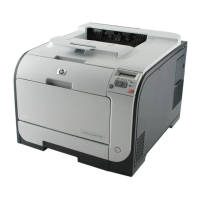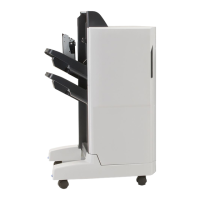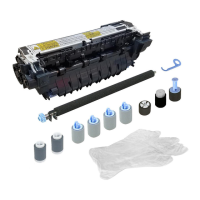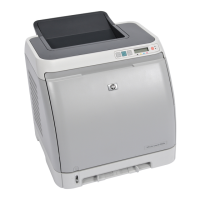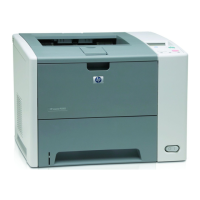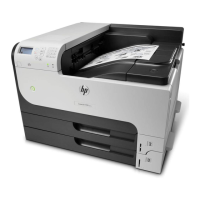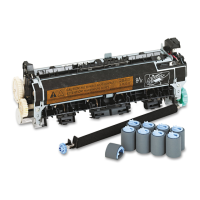using the DEFAULT command (User Default Environ-
ment). In this example, the number of copies feature set-
ting then defaults to 3 after a PJL reset condition.
All other features operate similarly—if any feature is not
modified by a higher priority action, it keeps its current
value setting.
Example: Changing
Environment Settings
This example shows the values stored in the different
environments when commands are issued. The example
begins with the number of copies set to 1 in all
environments (the Factory Default Environment setting).
The table reflects the current settings after each command.
Command Sent Environment Setting
Factory
Default
User
Default
PJL
Current
Modified
Print
After PJL INITIALIZE or RESET MENU 1 1 1 1
@PJL DEFAULT COPIES=3 1311
@PJL SET COPIES = 4 1344
@PJL ENTER LANGUAGE=PCL<LF>
<ESC>&l5X
1345
<ESC>%-12345X 1333
Environment
Summary
As indicated previously, each print environment differs in
relation to how it is stored, how the settings are changed,
and how the PJL Current Environment can be defaulted.
The table on the following page summarizes the
characteristics of each print environment. For those
printers without a control panel, disregard any mention of
control panels. In these printers, User Default Environment
features are controlled using just the DEFAULT command.
Note See Appendix A for a list of environment variables
supported by each PJL printer.
6-6 Environment Commands
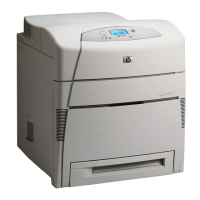
